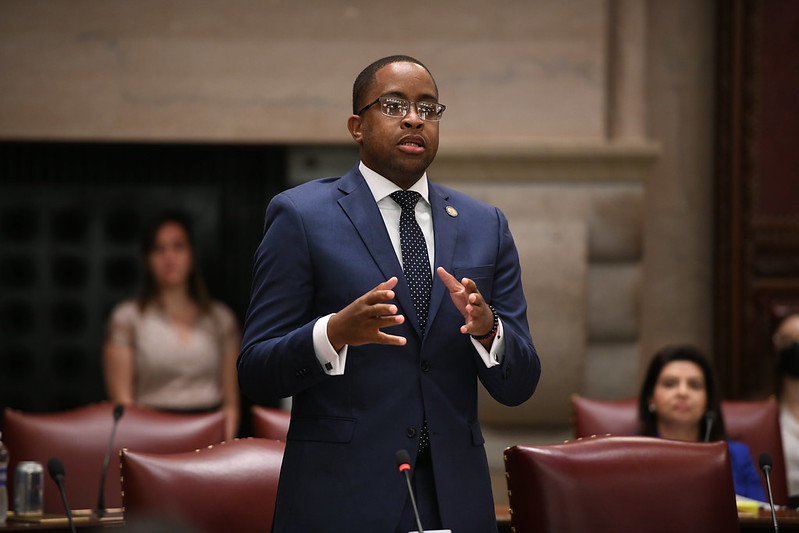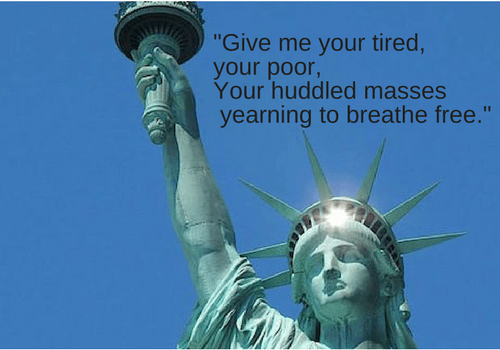In an extraordinary special session of the state legislature Friday, Albany lawmakers passed and Governor Kathy Hochul signed a series of bills putting additional restrictions on gun ownership and took the first step in amending the state constitution to enshrine the right to abortion.
The bills follow two successive Supreme Court decisions last week that threw out New York’s law restricting who can get an open-carry firearm permit and overturned Roe v. Wade, which guaranteed national abortion rights, kicking decisions about the legality of abortion back to the states. Hochul called the special session shortly after both decisions were issued late last week, with debate meant to begin on Thursday but getting pushed to Friday.
In a statement, the governor lauded the quick passage of the gun control measures in the wake of the court’s ruling in New York State Rifle and Pistol Association v. Bruen.
“A week ago, the Supreme Court issued a reckless decision removing century-old limitations on who is allowed to carry concealed weapons in our state — senselessly sending us backward and putting the safety of our residents in jeopardy,” Hochul said. “Today, we are taking swift and bold action to protect New Yorkers. After a close review of the NYSRPA vs. Bruen decision and extensive discussions with constitutional and policy experts, advocates, and legislative partners, I am proud to sign this landmark legislative package that will strengthen our gun laws and bolster restrictions on concealed carry weapons.”
The package of gun control bills – S51001 – passed the Senate by a 43 to 20 margin. While explaining her vote, state Senate Majority Leader Andrea Steward-Cousins, who sponsored the package along with state Senators Zellnor Myrie (D–Brooklyn) and Brian Kavanagh (D–Manhattan, Brooklyn), said the Supreme Court’s rulings on guns and abortion made the country “infinitely more dangerous” and relegated women to “being second-class citizens.”
“For generations we relied on the federal government to set the floor for our civil liberties for our entire nation. However, in the two rulings last week, the court eviscerated that principled stance,” Stewart-Cousins said. “It argued that our right to live safely in public and our right to make personal choices is really dependent on the state in which we reside. So be it. The federal government is incapable of setting the baseline for our rights and protections, then we will do it ourselves. Today we’re regulating concealed carry permits and taking action to ensure choice and contraception are protected in our constitution.”
The legislation lays out a new definition for gun-free zones called “sensitive locations.” The locations include houses of worship, public transit, sporting and entertainment venues, sidewalks, public parks, government buildings and Times Square.
In explaining his vote, Myrie pushed back on comments from GOP senators who casted these new gun control bills as unconstitutional given the Supreme Court ruling.
“I disagree with the Supreme Court’s ruling in Bruen,” Myrie said. “But it is the law of the land. And the court made two things clear. One was that we have the ability to designate sensitive places, if we look to the historic tradition – long-standing well-settled regulations. And the court explicitly included in those long-standing well-settled regulations schools, government buildings, legislative assemblies, polling places, and courthouses. So, we know that those are presumptively constitutional. But the court said that we are also facing different challenges today than we were in the 18th and 19th Century. And that in examining gun regulations, the court can look to new and analogous regulations as it relates to determining sensitive places.”
The legislative package also intends to strengthen the concealed carry permitting process by adding the requirement applicants must demonstrate “good moral character” in order to obtain a license. They also must do an in-person interview with a licensing officer and submit materials including the names and contact information of their spouse or partner, five character references and a list of all their social media accounts from the past three years.
Additionally, applicants can’t have committed third degree assault, misdemeanor driving under the influence or menacing over the past five years.
The legislation also changed language in a bill passed earlier this year that banned certain kinds of bullet-proof vests to include steal-plated body armor.
In addition to pushing back on the constitutionality of the package, Senate Republicans also decried the Democratic supermajority’s urgency in moving to pass the bills. GOP state Senators Daniel Stec (R–Adirondack region) and Thomas O’Mara (R–Southern Tier) both said Democrats rushed the bills onto the floor only 12 hours after they were written and didn’t wait the constitutionally required three-day aging period.
“What is the necessity of waiving the three-day constitutional waiting period to approve a bill in the legislature?” O’Mara asked. “Why are we doing this today, and less than 12 hours of having this bill in our hands, and having no opportunity for the public to weigh in on this?”
Kavanagh responded that the process had to move quickly, even though the bills won’t take effect until September, given the recency of the court ruling. And also to give gun permit holders enough time to read up on all of the changes made.
The Senate also passed the Equality Amendment, which adds several protected classes under the state constitution including race, disability, sex, gender identity, pregnancy and “pregnancy outcomes.” The bill passed by a 49-14 vote with seven senate Republicans voting in favor.
In order for an amendment to be added to the constitution, it must be passed by two consecutive sessions of the state legislature and then approved by a state-wide referendum vote. If the amendment passes both now and next session, it could be on the ballot in 2023 or 2024.
“The reversal of Roe v. Wade made it clear that New York State must continue to stand up and be a national leader to protect women and individual rights,” the majority leader said. “That is why we are proactively codifying broader equal rights under the law and ensuring the constitutional right to abortion and contraception in New York. This is a massive step forward for our state while others move backwards, and an important stance against the Supreme Court’s attacks on our rights.”
This report was updated to reflect new developments after post time.










